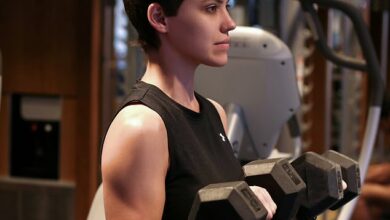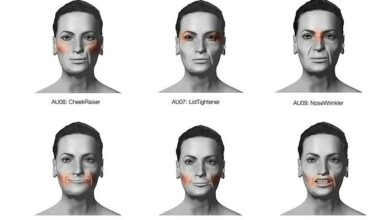My acid reflux turned out to be an aggressive form of cancer and my entire stomach had to be removed. I thought I was going to die.









A nurse who thought she was suffering from heartburn after eating later told her she had an aggressive form of cancer and her entire stomach had to be removed.
Chloe Stirling initially thought it was due to eating spicy and fatty foods, such as tomato pasta or takeaway food, and she was taking antacids (over-the-counter medications for heartburn).
But the medications only temporarily relieved her symptoms and after 16 months she was still in severe pain and had difficulty eating.
The 29-year-old woman from St Helens, Merseyside, was eventually diagnosed with adenocarcinoma (cancer) in her stomach.
This summer, she underwent four rounds of chemotherapy and earlier this month, on August 5, surgeons removed her entire stomach and several lymph nodes during a six-hour surgery.


Nurse Chloe Stirling, 29, was diagnosed with aggressive cancer after experiencing heartburn after eating and had to have her entire stomach removed.
Two weeks later, Chloe was told that the surgery had worked and she was cancer-free.
Chloe, a trainee nurse, said: ‘Initially I only suffered from heartburn after eating spicy or unhealthy foods, but it became more and more frequent.
‘I had an endoscopy and they thought it was an ulcer. I was put on new medication but I still had heartburn.
‘Then I got a phone call saying I had an aggressive form of cancer, and they said I had a 50 percent chance of survival.
“I thought I was going to die. I cried every day for about two months because of all the ‘what if’ thoughts.”
She added: ‘When I woke up after the surgery I knew I was cancer free and that was a huge relief.’
Chloe started experiencing heartburn in July 2022, but in November 2023 she also started experiencing pain and vomiting.

Chloe’s heartburn started in July 2022, but by November 2023 her symptoms had changed to stomach pain and vomiting

Chloe went to the GP and told them she was having trouble eating. She was sent for an endoscopy but all they found was a small ulcer and a common bacterial infection

When Chloe’s heartburn did not stop, a biopsy of the ulcer was performed and a diagnosis of poorly differentiated signet ring cell adenocarcinoma was made on March 21. Chloe is pictured in the hospital.

“I was given a 50 percent chance of survival, I thought I was going to die – I cried every day for about two months because of all the ‘what if’ thoughts,” Chloe (pictured in hospital) recalls.
She said: ‘When I ate or drank, even just water, I would get a strange pain in my sternum and back. I also had pain on the right side of my upper abdomen.
At the time, she was taking Ozempic injections to lose weight, in preparation for her wedding to her fiancée Aimee, 30, in June 2025.
She stopped and the pain went away, but she remained suspicious.
A few weeks later she went to the doctor and told him that she was having trouble eating and that she was afraid she had cancer.
She was referred for an initial endoscopy, but all that was found was a small ulcer and a common bacterial infection, H. pylori, which is known to cause ulcers.
But H. pylori can also cause more serious illnesses, including cancer.
When Chloe continued to experience heartburn, a biopsy of the ulcer was performed. On March 21, she was diagnosed with poorly differentiated signet-ring cell adenocarcinoma.
It was between stages two and three and had therefore not yet spread.
Chloe said, “I thought I was going to die.”
Her stomach was removed and her esophagus was directly connected to her small intestine.
She can still eat and digest even though she no longer has a stomach. She started on liquids and soft foods and was given vitamin injections and iron infusions.
She wants to warn others to watch for the symptoms, to persevere if they know something is wrong and not just assume it’s safe because they’re so young.
Chloe said, “If your reflux is persistent, get it looked at. If you know something is wrong, advocate for yourself.
Don’t let anyone tell you you’re too young to have cancer, no one is too young.
“Cancer doesn’t discriminate and you never think it will happen to you – until it does.”

Her stomach was removed and her esophagus was connected directly to her small intestine. She can still eat and digest food, despite not having a stomach. Chloe pictured with fiancée Aimee, 30

Chloe wants to warn others to be aware of the symptoms, to persevere if they know something is wrong, and not to assume they are safe because of their young age.




